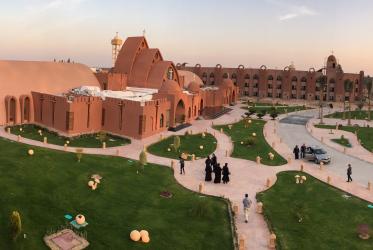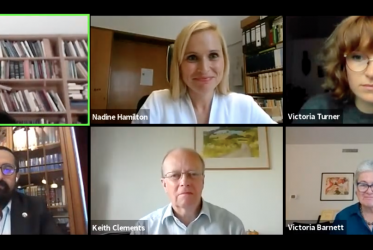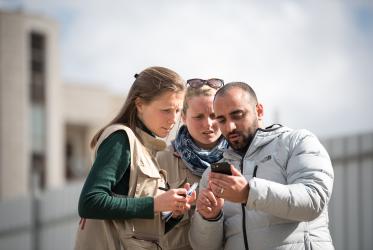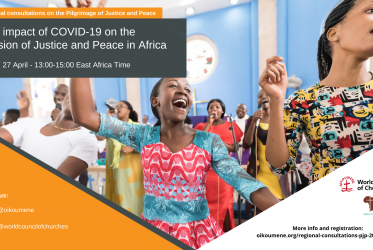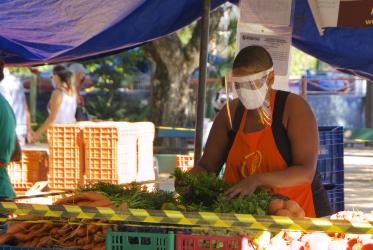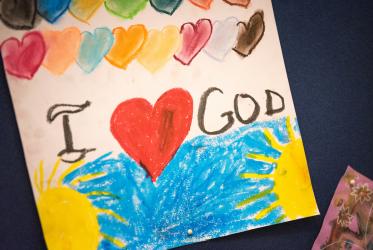Displaying 1 - 20 of 35
“Empower our pilgrimage through love”
07 November 2018
WCC welcomes new staff
06 November 2018
Not just numbers, displaced people need to share their stories
01 February 2018
In Nigeria, WCC workshops focus on human rights
04 December 2017
Rebecca Dali: My faith in God motivates me every second
24 August 2017
Dutch Reformed Church looks to Africa, after troubled past
08 August 2017
Seven weeks of Lent highlight water crisis in Africa
01 March 2017
Justice and peace in Africa: Where to start? Where to go?
27 February 2017
